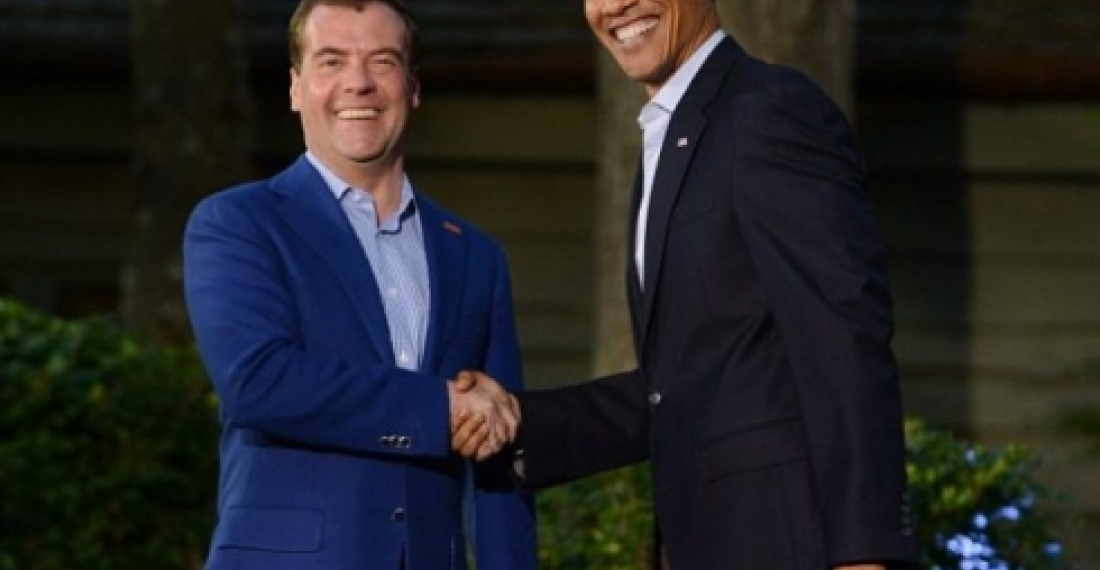Президент США, Барак Обама, поприветствовал теплыми словами премьер-министра России, Дмитрия Медведева, во время его прибытия в Кэмп-Дэвид на встречу на высшем уровне G8, проходящую там в эти выходные. "Дмитрий, рад Вас видеть, мой друг! Как Вы?" - было слышно, как лидер США говорит премьер-министру России. Независимо от неразрешенных политических проблем, личные взаимоотношения между ними, похоже, хорошие.
Медведев, который замещает Владимира Путина на встрече мировых лидеров, был одет в поразительный синий пиджак и, казалось, наслаждался моментом. Другими присутствующими лидерами на заседании в Кэмп-Дэвиде были новый президент Франции, Франсуа Холланд, который ранее провел отдельную двустороннюю встречу с Обамой, а также лидеры Китая, Германии, Канады, Великобритании, Италии и Японии, и Европейского Союза .
Как и ожидалось, экономические вопросы были основной темой обсуждений в ходе встречи, но также обсуждались события в Сирии и иранская ядерная проблема. Возможно было несколько ссылок на Южный Кавказ в итоговом документе, но на данный момент этот регион не в центре внимания мировых лидеров.
Источник: commonspace.eu
Фото: Президент Обама приветствует премьер-министра Медведева на саммите G8, в Кэмп-Дэвиде, 18 мая 2012 года.
Commentary
"Дмитрий, рад Вас видеть, мой друг! Как Вы?" Обама оказывает теплый прием Дмитрию Медведеву в начале встречи на высшем уровне G8 в Кэмп-Дэвиде, несмотря на имеющиеся трудности.







